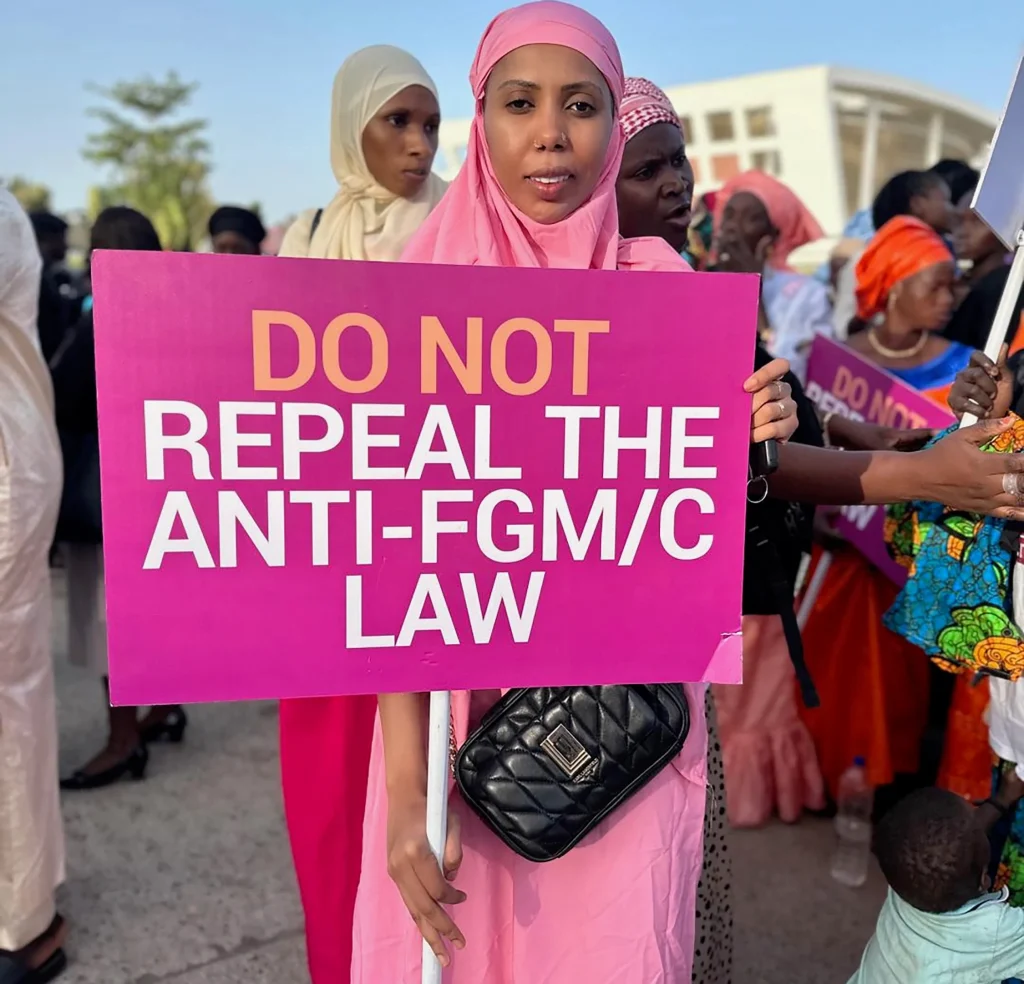A proposal aimed at reversing the ban on Female Genital Mutilation (FGM) in The Gambia has progressed to the next stage of parliamentary proceedings, known as the second reading.
Despite FGM being outlawed in The Gambia in 2015, proponents seeking to overturn the ban argue that it encroaches upon religious freedoms and contradicts the nation’s cultural traditions.
Following its successful passage through the second reading, the bill will now undergo further examination by a committee of Members of Parliament (MPs).
This development has dismayed FGM survivors and activists, who had fervently opposed the bill. They assert that FGM not only inflicts enduring harm but also infringes upon a woman’s fundamental right to bodily autonomy.

Furthermore, opponents of the proposed reversal argue that it would tarnish The Gambia’s reputation regarding human rights.
The parliamentary debate surrounding the bill was impassioned, resulting in 42 members voting in favour, while four opposed, with one abstention.
Although the ban has been in effect since 2015, it was not until 2023 that convictions were secured, leading to the imprisonment of several individuals involved in performing FGM. Subsequently, calls to rescind the ban gained momentum.
Recent surveys indicate that a staggering 73% of women in The Gambia have undergone FGM, with 65% of those subjected to the practice being under the age of five.
If the bill successfully garners approval, The Gambia would become the first country to reverse a ban on FGM, marking a significant departure from previous legislative measures.


